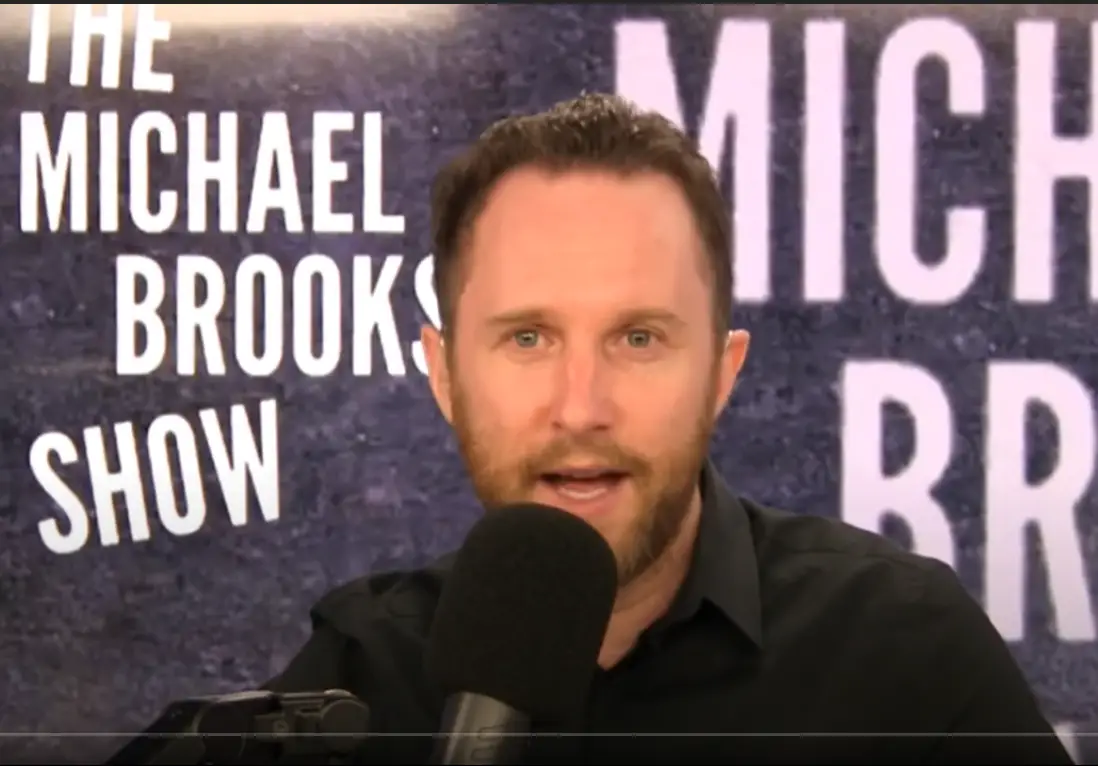For a while, I just knew Michael Brooks as the funny co-host on “The Majority Report,” a listener-funded, progressive internet talk show hosted by Sam Seder. And, indeed, I was always impressed by his broadcasting talents when he would fill in for Seder. His ability to make politics fun and interesting captivated me. It also helped that I happened to agree with virtually everything that came out of his mouth.
But my love for Brooks really blossomed when he branched out and started his own venture. Brooks is now known as the host of “The Michael Brooks Show” (TMBS). In less than two years, the show’s YouTube channel has amassed over 126,000 subscribers. While this number might not stack up with some of the site’s most popular creators, it’s a rather large tally compared to other political commentators.
That said, there are other channels within the genre that are considerably bigger. Carl Benjamin (known on YouTube as “Sargon of Akkad”), for example, is approaching the 1 million-subscriber landmark. His strong rhetorical skills fueled his rise to internet stardom. He was the big man on campus when it came to YouTube political debate.
Brooks, though, was apparently unfazed by Benjamin’s reputation. In early 2016, the two went toe-to-toe after Benjamin labeled Brooks a “regressive leftist.” Apparently, Benjamin’s accusation stemmed from what he perceived to be Brooks’ reluctance to attack Islam. “The regressive left” is a phrase Benjamin is quite fond of using. In addition to Brooks, Benjamin considers The Intercept’s Glenn Greenwald and Vox co-founder Ezra Klein to be members of the “regressive left”.
Brooks began their debate with a fairly straightforward question. He simply wanted to know why Benjamin considered him to be a part of the “regressive left.” Benjamin instantly crumbled. For some reason, he was totally unwilling to answer. In fact, Benjamin went the entire debate without answering the question despite Brooks asking around a dozen times.
Brooks called out Benjamin for over-generalizing Islam. He criticized Benjamin for avoiding historical analysis of the roots of Islamic extremism in favor of cherry-picking unsavory Quran quotes. Quoting neoconservative author and neuroscientist Sam Harris, Benjamin often calls the book “the mother lode of bad ideas.” Brooks also pointed out that when Benjamin condemns Islam as inherently backward, he discredits the work of moderate Muslim reformers and feminists such as Fatima Mernissi and Asma Jahangir. According to Brooks, in doing so, Benjamin was “engaging in a performative contradiction.”
In less than 50 minutes, Brooks exposed Benjamin for exactly what he has always been: an empty polemicist. Benjamin is far more concerned with “triggering the libs” than he is with thoughtful political discussion. He doesn’t want understanding. He doesn’t want solutions. He doesn’t want truth. He wants views, likes, clips, clicks and subscribers — all of which translate to income for Benjamin.
And that’s why Brooks was able to so thoroughly dismantle him. When you actually have a passion for the issues, you spend time learning about them. Unlike Brooks, Benjamin isn’t willing to do the grunt work. He isn’t willing to read the books or do the research necessary to have a firm grasp on complicated issues like Islamic extremism or Middle Eastern affairs. In the end, it was no contest. Any objective viewer walked away from the exchange seeing Brooks as the decisive victor. Benjamin didn’t do his homework and Brooks, the teacher, had a field day.
That classroom dynamic was recreated in Brooks’ debate with Steven Bonnell, known on YouTube as Destiny. Their debate in August of 2019, more than three years after Brooks’ discussion with Benjamin, marked his long-awaited return to YouTube debate.
At the time, Bonnell, a self-proclaimed neoliberal capitalist, was the preeminent rising star of the YouTube debate scene. His channel currently has almost double the subscribers of Brooks’. But again, Brooks didn’t seem to care.
The exchange with Bonnell almost immediately turned from a debate into a teaching session. The primary focus of which was, broadly speaking, international economic relations. From the outset, it was clear Bonnell was in over his head when it came to the intricacies of global trade policy.
Rather than argue with him, Brooks found himself having to walk Bonnell through the effects of landmark trade deals. Most of the discussion centered around the Trans-Pacific Partnership (TPP): a proposed trade agreement between the United States, Australia, Brunei, Canada, Chile, Japan, Malaysia, Mexico, New Zealand, Peru, Singapore and Vietnam that was never ratified.
Bonnell said he was a supporter without seeming to know much about it. For example, Bonnell was unaware of the TPP’s utter lack of enforcement in dealing with companies that destroy the environment. Bonnell had no answer to Brooks’ critique that the agreement would’ve done virtually nothing to combat corporate polluters.
Likewise, Brooks had to explain to Bonnell the TPP’s consequences for public health. Strengthened intellectual property protections would’ve seriously limited the ability of developing nations to manufacture cheap generic drugs. The TPP would’ve also imposed restrictions on the ability of governments to regulate health care providers, which could lead to deadly practices like price-gouging. These are some of the reasons why so many health care workers vocally opposed the deal.
These aren’t trivial or esoteric details. They’re things you should be familiar with if, like Bonnell, you want to defend the TPP’s merits. Before advocating for something, one should familiarize themselves with potential counterarguments.
By the end of the hour-long debate, Brooks exposed Bonnell, like Benjamin before him. His fast talking and confidence could only get him so far. When you step into the lion’s den with Michael Brooks, you’d better be prepared — and neither Benjamin nor Bonnell were. Their lack of knowledge was evident.
And knowledge is one of the few things you can’t fake. Either you know your stuff, or you don’t. In the words of Brooks himself, “I don’t play video games, so I don’t make YouTube videos about them. It’s important to have a grasp in the ground of what you’re talking about… This is why it’s so great to do the research and read.”
Michael Brooks, who calls himself a reluctant debater, was thus able to conquer the YouTube debate scene. In a milieu littered with pseudo-intellectuals and faux experts, Brooks brought some much-needed thoughtfulness and depth to the table. I thank him for his positive contribution to online political discourse.

















